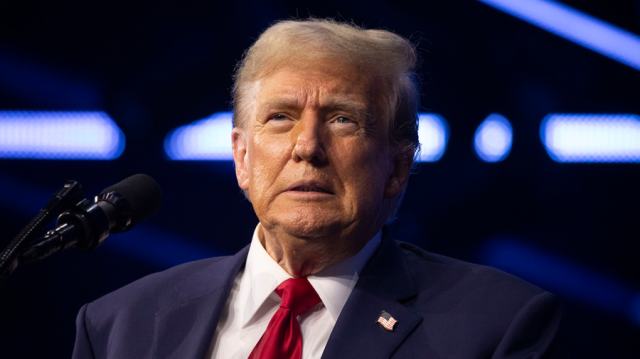The US Supreme Court is expected to deliver a landmark decision on Monday regarding whether former President Donald Trump is immune from prosecution. This highly anticipated ruling could significantly impact the trial for Trump’s alleged conspiracy to overturn the 2020 election results, a trial crucial as Trump seeks the Republican nomination for the upcoming presidential election.
“We are writing a rule for the ages,” stated Justice Neil Gorsuch, a conservative appointee of Trump, during the April hearings. Justice Brett Kavanaugh, another Trump appointee, emphasized the broader implications: “This case has huge implications for the presidency, for the future of the presidency, for the future of the country.”
Trump’s trial, initially set for March 4, has already faced delays. The Supreme Court, with its conservative majority, agreed to consider Trump’s argument for presidential immunity in February, pausing the proceedings. The justices appeared skeptical of Trump’s absolute immunity claim during the April arguments, with some questioning if it implied a president could “commit crimes with abandon.”
The forthcoming decision is expected to reject Trump’s claim of complete immunity. However, the ruling’s specifics could further delay the trial, potentially affecting whether Trump faces prosecution before the November 5 election. The justices might refer the case back to lower courts to determine which of the special counsel’s allegations against Trump, now 78, pertain to official acts and are thus potentially immune from prosecution. Such a move would inevitably extend the trial’s timeline.
Trump, currently facing four criminal cases, has been actively seeking to delay these trials until after the election. On May 30, a New York court convicted Trump of 34 felony charges related to falsifying business records to cover up a sex scandal during the 2016 presidential campaign, making him the first former US president to be convicted of a crime. His sentencing is scheduled for July 11.
Despite the New York case being deemed the weakest of the four by many legal experts, it is likely the only one to proceed before the election. Through various pre-trial motions, Trump’s legal team has managed to delay the other three trials, which address his attempts to overturn the 2020 election results and his retention of top-secret documents at his Florida residence.
If re-elected, Trump could potentially order the cessation of federal trials against him upon taking office in January 2025.

